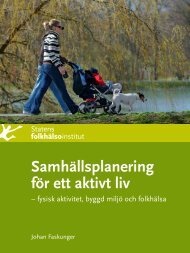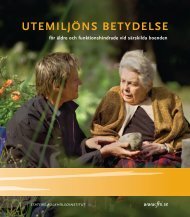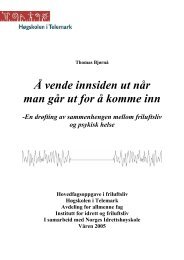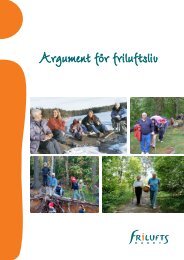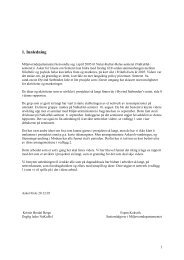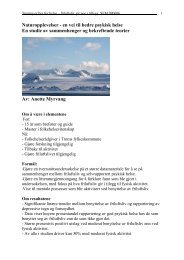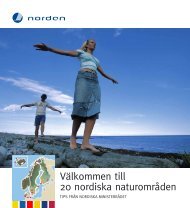Green Care: A Conceptual Framework - Frisk i naturen
Green Care: A Conceptual Framework - Frisk i naturen
Green Care: A Conceptual Framework - Frisk i naturen
Create successful ePaper yourself
Turn your PDF publications into a flip-book with our unique Google optimized e-Paper software.
6.10 Recovery model<br />
‘The Recovery Model’ is much vaunted as an alternative to traditional<br />
psychiatric practice, and has several relevant aspects to green care:<br />
sustainability, holism, authenticity and a focus on growth and development.<br />
Its critics maintain that it is ill-defined and rather diffuse as a concept<br />
(perhaps shared with green care); this is generally rebutted by the<br />
consideration that ‘recovery’ is defined by the service users who are in the<br />
process of recovery themselves, and not by ‘experts’ who are telling them<br />
how they should be.<br />
Another aspect is to play down a focus on illness and pathology, and take<br />
a more positive attitude – Cloninger (2006) describes “The Happy Life;<br />
voyages to well-being”. A related venture, in the face of the relentless<br />
rationalism of evidence based decision making, is work to define an<br />
underlying value base: ‘evidence based practice’ may be necessary for<br />
services and units to survive in the current climate, but many feel it is<br />
not sufficient, at least in mental health. Fulford (2004) has related it to<br />
principles of moral philosophy, and the Sainsburys Centre for Mental<br />
Health has developed a workbook, by Woodbridge and Fulford (2005), for<br />
practitioners to examine the values which underlie their practice. A value<br />
which is rarely mentioned in academic writing, but frequently mentioned<br />
as of importance in day-to-day green care or therapeutic community work<br />
is that of understanding spiritual needs as well as biological, psychological<br />
and social ones, and the power of working with nature to meet them. This<br />
is now gaining widespread acceptance, and is described in this way by<br />
Walters (1994):<br />
“In variety, small communities cannot compete with cities. The<br />
greatest satisfaction in the arts, however, lies in creating, not<br />
merely in being entertained. In this area of life, the intentional<br />
community could offer incomparably more than the big city:<br />
the time to create, and interested audience, inspiring natural<br />
surroundings, and an opportunity to explore and develop<br />
one’s inner life.” (p. 30)<br />
A collaborative UK project has produced the ‘Mental Health Recovery<br />
Star’ (MacKeith and Burns, 2008), which is a 10-point, 10-scale self-rated<br />
83




